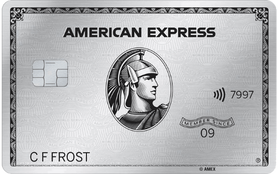Overview
We spend a lot of time writing about the free travel and luxury benefits credit cards can offer you, and trust us, we’ll keep doing that. But there’s one underappreciated perk flying under the radar of most cardholders, and it might just be the most valuable one of them all: travel insurance.
A strong travel insurance policy should be one of the first things planned before any trip, but it’s often neglected. While we might get away with it most of the time, we’re all a fender bender, missed flight, or lost bag away from an expensive problem. And that’s not even considering some of the worst-case medical scenarios.
So, as you consider a shiny new travel card, keep insurance in mind. To help you find the most valuable, we’ve built a list of the best credit cards for travel insurance benefits.
Chase Sapphire Reserve®
The Chase Sapphire Reserve® leads the pack with its tremendous coverage. Of course, with a premium card comes premium-sized annual fees, but considering how much it could save you in a tough situation, Chase Sapphire travel insurance is well worth it for many.
Chase Sapphire travel insurance comes with an auto rental collision damage waiver, trip cancellation and interruption insurance up to $10,000 per instance, trip delay reimbursement, lost luggage reimbursement up to $3,000 per person, emergency medical and dental up to $2,500, medical evacuation insurance, and travel accident insurance.
Overview
Trip cancellation: $10,000 per person/ $20,000 per trip
Trip interruption: $10,000 per person/ $20,000 per trip
Trip delay: $500 per ticket when delayed more than 6 hours
Baggage delay: Up to $100 per ticket for 5 days
Lost luggage: Up to $3,000 per passenger
Travel accident: Up to $1 million
Rental car insurance: Up to $75,000
Medical coverage: Up to $2,500 emergency medical and dental coverage
- Best for: Luxury Travel
Chase Sapphire Reserve®
100,000 bonus points
Offer Details:
Earn 100,000 bonus points + $500 Chase TravelSM promo credit after you spend $5,000 on purchases in the first 3 months from account opening.
Why we like it
This card just got a major re-vamp and you can now get more than $2,700 in annual value with Sapphire Reserve!
Reward details
8x points on Chase TravelSM
4x points on flights and hotels booked direct
3x points on dining
1x points on all other purchases
Pros & Cons
Pros
-
The points are worth up to 2 cents a piece when used directly on Chase’s Ultimate Rewards Portal, offering a simple but high-value use for your points.
-
Plenty of excellent transfer partners allow points to be maximized
-
Some excellent partnerships with Doordash and Lyft add to its value.
-
Priority Pass membership allows access to over 1,300+ airport lounges and restaurants.
Cons
-
It’s subject to Chase’s 5/24 rule. So if you’ve opened five cards in the last two years, you’re most likely not going to be accepted.
-
Chase has a once-per-lifetime rule for sign-up bonuses on their Sapphire cards, including the Sapphire Preferred, Sapphire Reserve, and Sapphire Reserve for Business. So, once you’ve earned a welcome bonus on any of these cards, you’ll never be eligible for the bonus again on the same card.
Terms Apply
Capital One Venture X Rewards Credit Card
Capital One travel insurance is another premium option, although only costing a far more palatable $350. The Capital One Venture X Rewards Card is one of the best credit cards for travel insurance benefits. If you’re renting a car, declining the rental agency’s coverage grants you primary coverage, giving you peace of mind if the worst happens on your trip.
On top of the stellar rental insurance, every ticketholder paid for with the card is covered with trip cancellation and interruption insurance up to $2,000, as well as lost luggage and trip delay reimbursement. You won’t be covered for medical situations, however, so you’ll need to use this in tandem with a great insurance policy.
Overview
Trip cancellation: Up to $2,000 per person
Trip interruption: Up to $2,000 per person
Trip delay: $500 per ticket when delayed more than 6 hours/overnight stay
Baggage delay: N/A
Lost luggage: Up to $3,000 per passenger
Travel accident: Up to $1 million
Rental car insurance: Up to $75,000
Medical coverage: N/A
- Best for: Overall Travel
- Annual Fee: $395
- Regular APR: 19.99% - 29.24% (Variable)
- Reward Rate: 2X - 10X
- Recommended Credit: 720-850
Capital One Venture X Rewards Credit Card
75,000 Bonus Miles
Offer Details:
75,000 bonus miles after you spend $4,000 on purchases in the first 3 months from account opening.
Why we like it
The Capital One Venture X is a direct competitor to the Chase Sapphire Reserve, and for many seeking a simpler earning scheme with premium perks, it could be the better option. But the Venture X truly shines with one benefit in particular: four free authorized users. Plus, every year on your cardholder anniversary you get 10,000 points to use for travel.
Reward details
10 Miles per dollar on hotels and rental cars booked through Capital One Travel
5 Miles per dollar on flights and vacation rentals booked through Capital One Travel
2 Miles per dollar on every purchase
Pros & Cons
Pros
Its solid intro bonus of 75,000 miles is worth well over $1,000 when transferred to partner airlines and hotels, or a flat rate $750 when redeemed on the Capital One Travel Portal.
Cardholders get a bonus of 10,000 miles each year after their first account anniversary, which is nothing to shrug off, especially when a little bit short of that business class flight. It’s worth almost $200 depending on how you use it.
The $300 annual credit for purchases made on the Capital One Travel Portal, combined with the yearly free miles, more than annul the $395 annual fee.
Four authorized users can be added for free.
Enjoy access to 1,300+ lounges worldwide, including Capital One Lounge locations and Priority Pass™ lounges, after enrollment
A generous offering of travel insurance, protections and reimbursements round out an excellent array of benefits.
Cons
The $300 credit is a bit less flexible than the Chase Sapphire Reserve’s comparable benefit.
Miles earning is the same as the Sapphire Reserve on portal-based purchases, but less on general travel spending.
Capital One transfer partners are solid, but still don’t include any US-based airlines or hotels.
Terms Apply
Chase Sapphire Preferred® Card
If the Chase Sapphire Reserve is a little beyond your budget, check out its more affordable sibling, the Chase Sapphire Preferred® Card. While this $95-a-year card may have less travel coverage, its Chase Sapphire travel insurance still packs a value-laden punch.
The Chase Sapphire travel insurance shares the same auto rental collision damage waiver as the Reserve, lost luggage reimbursement, trip cancellation, and trip interruption insurance. Other benefits like travel accident insurance, emergency medical, and medical evacuation insurance are either not included or have less coverage. It’s still a massive contender, and at that price point, it’s arguably the best value card on this list.
Overview
Trip cancellation: Up to $5,000 per person
Trip interruption: Up to $5,000 per person
Trip delay: Up to $500 per ticket when delayed more than 12 hours
Baggage delay: Up to $100 for five days
Lost luggage: Up to $3,000 per passenger
Travel accident: Up to $500,000
Rental car insurance: Up to the cash value of the car
Medical coverage: N/A
- Best for: Beginner Travelers
Chase Sapphire Preferred® Card
75,000 Bonus Points
Offer Details:
Earn 75,000 bonus points after you spend $5,000 on purchases in the first 3 months from account opening.
Why we like it
The Chase Sapphire Preferred Card is the ultimate all-around travel credit card—it fits perfectly into almost any points-earner’s wallet. Points novices can enjoy a significant intro bonus and easy to grasp spending categories with an approachable annual fee. The more experienced can utilize its high value earning potential as a secondary card and also gain access to Chase’s strong travel booking portal.
Reward details
5x on travel purchased through Chase Travel℠.
3x on dining, select streaming services and online groceries.
2x on all other travel purchases.
1x on all other purchases.
Pros & Cons
Pros
The $50 dollar hotel credit for stays purchased on the Chase Travel Portal already cuts the already approachable $95 annual fee significantly.
10% anniversary points boost – each account anniversary you’ll earn bonus points equal to 10% of your total purchases made the previous year.
Complimentary DashPass which unlocks $0 delivery fees & lower service fees for a min. of one year when you activate by 12/31/27. Plus, a $10 promo each month on non-restaurant orders.
Along with all of the above, cardholders also have access to a string of travel protections like rental coverage, cancellation insurance, and purchase protection.
Cons
It’s subject to Chase’s 5/24 rule. So, if you’ve opened five cards in the last two years, you’re most likely not going to be accepted.
Competing cards like the Capital One Venture have a better earning rate for non-bonus spend.
Chase has a once-per-lifetime rule for sign-up bonuses on their Sapphire cards, including the Sapphire Preferred, Sapphire Reserve, and Sapphire Reserve for Business. So, once you’ve earned a welcome bonus on any of these cards, you’ll never be eligible for the bonus again on the same card.
Terms Apply
American Express Platinum Card
The American Express Platinum Card is the most iconic card on this list. Its unmistakable shiny finish is synonymous with luxury travel perks, and the American Express travel insurance coverage offerings are just as plentiful. It doesn’t include any medical insurance beyond its global assist line, but it’s got you covered on a number of other angles.
American Express travel insurance trip cancellation and trip interruption insurance covers you up to $10,000 a trip up to $20,000 in a 12-month period, while its trip delay program can give you up to $500 per trip if you’re delayed more than six hours. It also comes with secondary car rental insurance, a baggage insurance plan, and emergency medical evacuation.
Overview
Trip cancellation: Up to $10,000
Trip interruption: Up to $10,000 per person
Trip delay: Up to $500 per ticket when delayed more than 6 hours
Baggage delay: N/A
Lost luggage: Up to $3,000 per passenger
Travel accident: Up to $500,000
Rental car insurance: Secondary policy up to $75,000
Medical coverage: Global assist program but no medical coverage
- Best for: Luxury Perks
The Platinum Card® from American Express
As high as 175,000 Membership Rewards® Points
Offer Details:
You may be eligible for as high as 175,000 Membership Rewards® Points after you spend $8,000 in eligible purchases on your new Card in your first 6 months of Card Membership. Welcome offers vary and you may not be eligible for an offer. Apply to know if you’re approved and find out your exact welcome offer amount – all with no credit score impact. If you’re approved and choose to accept the Card, your score may be impacted.
Why we like it
The Amex Platinum was once the sole dominating force in the luxury credit card space. While it now faces some stiff competition, it still offers unbeatable perks like unprecedented airport lounge access, elite status at Hilton and Marriott, and some outstanding statement credits making the mammoth $695 worth it for some.
Reward details
Earn 5X Membership Rewards® Points for flights booked directly with airlines or with American Express Travel® up to $500,000 on these purchases per calendar year
Earn 5X Membership Rewards® Points on prepaid hotels booked with American Express Travel®
Pros & Cons
Pros
Earn as high as 175,000 Membership Rewards® Points after you spend $8,000 on eligible purchases on your new Card in your first 6 months of Card Membership.
Incredible lounge access
Statement credits worth over $1,000 annually.
Unlock access to exclusive reservations and special dining experiences with Global Dining Access by Resy when you add your Platinum Card® to your Resy profile.
Cons
The $695 annual fee is brutally high. Too high for many that can’t, or don’t want to take full advantage of its benefits.
Points-earning rates are low unless spending directly on flights or with the Amex Portal.
Some of the benefits, like travel credits, are more limited and are harder to use than competing cards’ offerings.
Capital One Venture Rewards Credit Card
Capital One’s more affordable offering, the Venture is another of the best credit cards for travel insurance benefits. Another $95 annual fee makes its protection pretty high value.
This Capital One travel insurance option offers a robust travel accident policy of up to $1,000,000, luggage reimbursement of $1,500 per trip, and an auto rental collision damage waiver. Its primary medical coverage comes in the form of “emergency services,” which can help rearrange travel, find medical assistance, and seek legal help—but note that it’s not actual coverage, just support.
Overview
Trip cancellation: $1,500
Trip interruption: $1,500
Trip delay: N/A
Baggage delay: $100 per day for 3 days
Lost luggage: $1,500 per passenger
Travel accident: Up to $1,000,000
Medical coverage: Emergency assistance program
- Best for: Travelers who want to keep it simple
Capital One Venture Rewards Credit Card
75,000 Bonus Miles
Offer Details:
Earn 75,000 bonus miles once you spend $4,000 on purchases within the first 3 months from account opening - that’s equal to $750 in travel
Why we like it
The Capital One Venture is an excellent go-to card for any traveler, thanks to its easy to navigate 2 miles per dollar on every purchase. With no bonus categories to consider, a reasonable $95 annual fee, and a strong intro offer worth at least $750 in travel rewards.
Reward details
5 Miles per dollar on hotels, vacation rentals, and rental cars booked through Capital One Travel
2 Miles per dollar on every purchase, every day
Pros & Cons
Pros
-
The Capital One Venture’s current intro bonus is worth $750 when spent on Capital One’s (recently revamped) travel portal or you can use your miles to cover your recent purchases.
-
A steady 2 miles per dollar on all purchases makes earning simple and lucrative. You’ll also grab 5 miles per dollar when booking through Capital One’s travel portal.
-
Its $95 annual fee is almost negligible, especially if the intro bonus is achieved.
-
Flexible miles allow for a wide array of redemption options.
-
You can enjoy two free visits to a Capital One Lounge each year.
Cons
-
Capital One lacks US-based airline and hotel transfer partners.
-
Not many major perks beyond its miles value.
Terms Apply
Southwest Rapid Rewards® Plus Credit Card
The Southwest Rapid Rewards® Plus Credit Card flies well under the radar of many travelers. We’ve been recommending it for a while for its solid perks, but we haven’t focused too much on its strong travel coverage.
The card offers an auto rental collision damage waiver (which kicks in when the rental agency’s insurance is declined), lost luggage reimbursement of up to $3,000, baggage delay insurance, and travel accident insurance.
Overview
Trip cancellation: N/A
Trip interruption: N/A
Trip delay: N/A
Baggage delay: Up to $100 per day for 3 days
Lost luggage: Up to $3,000 per passenger
Travel accident: Up to $500,000
Rental car insurance: Secondary policy
Medical coverage: Emergency assistance program
- Best for: Beginner Southwest Points
Southwest Rapid Rewards® Plus Credit Card
50,000 Bonus Points
Offer Details:
Earn 50,000 bonus points after spending $1,000 on purchases in the first 3 months from account opening.
Why we like it
The Southwest Rapid Rewards® Plus Credit Card is the popular airline’s entry-level card and offers solid value for those who fly with the carrier at least once a year. It comes with a few easy-to-use perks like 3,000 Southwest points every year after your first cardmember anniversary and two EarlyBird check-ins per year. It’s a good option for those who want to earn Southwest points on an ongoing basis and not have to pay a high annual fee.
Reward details
2X points on Southwest® purchases.
2X points on local transit and commuting, including rideshare.
2X points on internet, cable, and phone services; select streaming.
2X points on Rapid Rewards® hotel and car rental partners.
1X points on all other purchases.
Pros & Cons
Pros
Cardholders enjoy two EarlyBird check-ins a year which allows for earlier boarding and more seat selection.
The 3,000 annual bonus points are worth around $40 towards travel on Southwest.
25% discount on Southwest in-flight purchases when paying with the card
The intro bonus can be used for collecting points for the Companion Pass benefits
Elite status can be earned with day-to-day spending, and not just flights.
Cons
Charges foreign transaction fees
Southwest points cannot be transferred or used with any airline partners.
Terms Apply
FAQ's
What are travel insurance benefits offered by credit cards?
Many credit cards come with various travel insurance benefits as part of their perks. These benefits typically include coverage for trip cancellations or interruptions, travel accident insurance, baggage delay or loss coverage, rental car insurance, and emergency medical assistance.
How do I know if my credit card offers travel insurance benefits?
You can find information about your credit card’s travel insurance benefits in the card’s terms and conditions, benefits guide, or by contacting your credit card issuer directly. Additionally, some premium cards clearly state these benefits on their websites.
Are these travel insurance benefits free or do I need to pay extra?
The types of trips covered can vary between credit cards, but most travel insurance benefits will typically cover both domestic and international trips, as long as you use the credit card to pay for a significant portion of the travel expenses.
What types of trips are covered by credit card travel insurance?
The types of trips covered can vary between credit cards, but most travel insurance benefits will typically cover both domestic and international trips, as long as you use the credit card to pay for a significant portion of the travel expenses.
Can I rely solely on my credit card's travel insurance or should I purchase additional coverage?
While credit card travel insurance can provide valuable coverage, it may not be as comprehensive as standalone travel insurance policies. It’s essential to review the coverage limits, exclusions, and terms of your credit card’s benefits and compare them with your specific travel needs. In some cases, purchasing additional coverage might be a good idea.













 by your friends at The Daily Navigator
by your friends at The Daily Navigator




